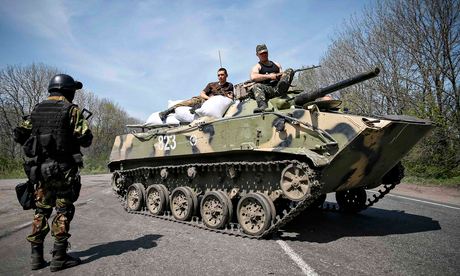
Ruth Deyermond
Ruth Deyermond is co-chair of the Russian and Eurasian security research group in the Department of War Studies, King's College London
Those who think this a neo-imperialist land-grab are mistaken. But Russia does want to maintain its status as a great power
Russia's role has been the most debated aspect of the Ukrainian crisis, but Russia's motivations remain under-examined. The worst analyses assume that this is just how Russia behaves, as if it were naturally more aggressive and rule-breaking than other states. This is a deeply unhelpful mistake.
One of the most important things at stake for Russia in Ukraine is its sense of itself as one of the world's great powers. Russia's identity is tied up with the idea of its great power status. With a narrow economic base, a declining population and continuing security troubles inside its borders, it doesn't look either as secure as other established, powerful states or as economically dynamic as the rising powers. As a result, its great power status rests on three things in particular: permanent membership of the United Nations security council; its nuclear arsenal; and its position as the dominant state in its region, that of the former Soviet Union.
Since the turn of the century all three have come under pressure from the US and its European allies. Military intervention in Kosovo and Iraq, along with the 2008 recognition of Kosovo as an independent state, undermined the UN security council and the legal framework connected to it. American missile defence plans, with bases originally planned in Poland and the Czech Republic, seemed to threaten Russia's nuclear capability. Finally, the George W Bush administration's push to have Georgia and Ukraine admitted to Nato in 2008 posed a serious challenge to Russia's position in the region and, from the perspective of the Russian government, to Russian state security. In 2013, a similar threat to Russian influence appeared with the proposed signing of EU association agreements with several states, including Ukraine.
As in Georgia in 2008, Russia has used political and military means to halt the inclusion of Ukraine into a western institution. The 2008 Georgian war and the recognition of Georgia's breakaway regions of Abkhazia and South Ossetia as independent blocked the possibility of Georgian Nato membership. In 2014, the absorption of Crimea and the activities of the Russian armed forces mean a territorially intact Ukraine cannot hope to move closer to the EU, while Nato membership is even more remote. As a significant bonus, the expulsion of Ukrainian forces from Crimea and continued influence in Abkhazia have given Russia effective control over a large area of the Black Sea, which it has always regarded as a strategically vital area.
Interpretations of the Ukrainian crisis as engineered by Russia to enable a neo-imperialist land-grab, though understandable in places with a long and unhappy history in relation to Russia such as Poland and Georgia, are mistaken. Russia has never seemed keen to bear the political or economic costs of reacquiring other ex-Soviet states when it can achieve its regional objectives through other instruments.
Russia's role in the origins of the crisis was differently motivated – attempting to prevent the irrecoverable loss of its most important neighbour to western institutions, it appears to have persuaded the Yanukovych government to pull back from closer ties to the EU. In doing so, it triggered the protests which brought down the Ukrainian government and presented a far more immediate and severe threat to its interests in Ukraine – a radically pro-western, anti-Russian government. Russian actions in Ukraine have been, and continue to be, an attempt to salvage its position in a crisis it helped to create but did not want.
For those in the US and Europe who fear an escalation of the crisis, this should be both positive and negative. The positive aspect is that far from being driven by a crazed, Hitler-like quest for European domination, the objectives of the Putin government appear to be both limited and rational: the protection of its regional security interests and great power status. Escalation of the crisis is precisely what needs to be avoided for this to succeed, which is why Russia appears open to a negotiated resolution.
The negative aspect for the US and its European partners is that sanctions and other possible punishments are likely to be ineffective, because they are trivial compared with the stakes for Russia in Ukraine. Attempted military coercion of Russia by the US is unthinkable, so an accommodation with Russia appears necessary – something the Obama administration is pragmatic enough to be prepared for.
The Ukrainian crisis is primarily a domestic one and its resolution will depend on Ukrainians themselves. But Russia's role is also key to resolving the crisis. Engaging effectively with Russia will require an understanding of what is at stake in Ukraine – Russia's status and identity.



.jpg/250px-ElbeDay1945_(NARA_ww2-121).jpg)





